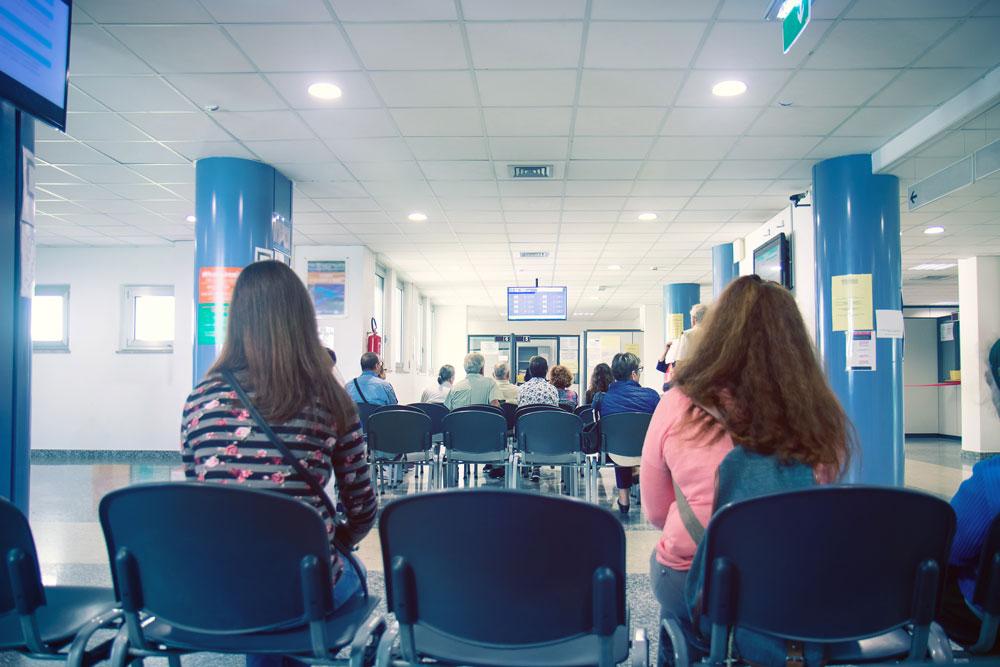Personal Health Budgets are key to meeting the government’s personalisation targets. Managing them, however, can pose many challenges. Jon Baker, PHBChoices director at NHS Shared Business Services (NHS SBS) believes that scalable marketplace style solutions may just hold the key
Personalisation is so central to the government’s vision for our healthcare system that it has its own chapter in the recently published NHS Long Term Plan; signalling a clear intention to expand this new model of care it is titled: ‘People will get more control over their own health and more personalised care when they need it’.
The plan makes it clear that Personal Health Budgets (PHBs) will be fundamental to the delivery of personalised care. PHBs will be provided to those with long term health conditions, empowering individuals to purchase precisely the type of care they need by allocating a personal budget that they can spend on their agreed health and well-being needs.
NHS England reports that there are currently around 40,000 people already managing their care in this way; the NHS Long Term Plan states that by 2023/24 this number will increase to 200,000.
This increase undoubtedly presents a challenge to Clinical Commissioning Groups (CCGs) who need to ensure they maintain governance to avoid clinical, reputational, regulatory and financial risks associated with the administration of these care budgets. While there are many individuals who have the right to a PHB, they are often not aware that this is the case; a PHB will not always be the right solution for everyone and some may wish to have their care managed in more established ways, to reduce the administrative burden on themselves with traditional oversight being retained by their CCG.
But, in the long term, the direction of travel is clear: the choice must be presented and the opportunity for individuals to administer and manage their own budget, to achieve their agreed health outcomes, must be made a reality. This change will shift the ownership and accountability for arranging care and managing budgets, however, CCGs must develop new ways of working to manage the potential risks, while maximising the opportunities for improved patient care and outcomes.
Improving outcomes
And certainly, for CCGs, the potential for better service provision for individuals through the use of PHBs should be a significant motivating factor; evidence has shown that patient-led care has clear clinical benefits.
Giving PHB holders direct purchasing power also – through the power of the market – has the potential to drive up the quality of care and service provision at both an individual and systemic level. Individual budget holders – who many would argue are best placed to judge care standards – are free to work with only the best providers.
But this decentralisation of care also poses administrative challenges for CCGs, who must walk the tightrope of facilitating this sort of patient-led care, whilst simultaneously managing the administrative requirements and potential risks, and demonstrating value for money for the public purse.
Our solution, PHBChoices, is a financial management system, which includes a secure, online marketplace for the administration of PHBs. The platform enables PHB holders, or their carer, to purchase products and services direct from national, regional and local suppliers in line with a care plan agreed with their CCG
The individual benefits from the control afforded by a PHB but without the burden of administration. PHBChoices is cashless (using a virtual wallet) and its functionality allows PHB holders to do everything from manage their personal carers’ timesheet and payroll, to buy specialist equipment such as wheelchairs, or find a respite care provider.
For CCGs, it enables them to achieve their NHS England personalisation targets, while providing better visibility, transparency and control than is possible when using a direct payment bank account. PHBChoices is fully integrated with the NHS Integrated Single Financial Environment (ISFE) – the payment platform used by all of the country’s commissioning organisations – so the CCG can retain cash until the patient spends their budget, whereby funds are transferred direct from the CCG to the supplier. Because all communication is online, all transactions are fully ‘auditable’.
There are also clear financial benefits for CCGs who need to provide greater personalisation from using existing budgets; it is clear that there is no “new” money to fund the migration to personalised care. PHBChoices provides CCGs with opportunities to achieve both cash releasing savings and avoid future increases in administrative costs, as well as improving cash flow.
With – as ever – the aim being to improve patient care, PHBs have great potential to support the best possible provision for the individual – enabling them to benefit from interventions that will make a tangible difference in their lives and improve outcomes.
CCGs must have infrastructure in place that enables PHB holders to easily access what they need, without placing undue administrative burden on them; the CCG needs to fulfil its own obligations with regards financial and auditing requirements in order to demonstrate that public money is being spent in the right way. We believe that for many CCGs, a scalable marketplace style solution like PHBChoices is just the solution.





